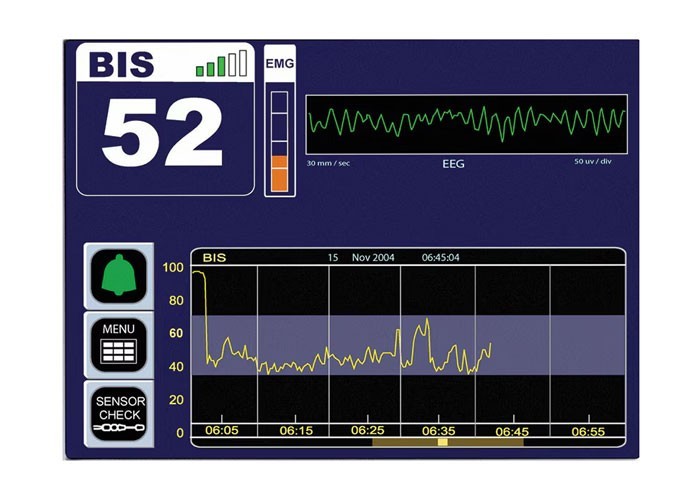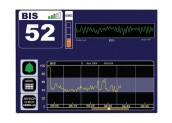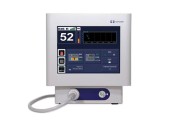BIS™ Brain Monitoring System
Medtronic
Utilizes state-of-the-art technology to process EEG information and provides a direct measure of the patient’s level of consciousness thus providing insight into the effects of anesthesia on the brain.
Overview
Gain insight into brain response with BIS™ technology
Bispectral Index™ (BIS™) monitoring enhances the clinician’s patient-¬targeted approach to induction, maintenance and emergence. BIS™ technology noninvasively measures and interprets brain wave activity directly related to the effects of anesthetic agents.
Among other benefits, BIS™ technology:
• Helps the clinician customize anesthetic dosing to individual patient physiologies
• Indicates hypnotic effect through the easy-¬to-¬read BIS™ index
• Facilitates improved patient outcomes as validated in multiple clinical studies
Features
• The monitor translates the raw EEG data into the easy-¬to-¬read BIS™ index.
• The monitor provides a user-¬configurable display.
• The monitor is a versatile platform designed for future expandability
Technology
BIS™ technology offers clinicians added security for providing specialized care and comfort for patients, including those who may be more sensitive to the hemodynamic effects of anesthesia.
BIS™ monitoring technology provides valuable information about patient status to help clinicians address each patient’s unique anesthetic requirements. This may be particularly valuable for:
• Patients with complex conditions whose status may suddenly or frequently change
• Patients with cardiovascular conditions
• Obese patients
• Trauma patients or others requiring reduced levels of anesthesia
• BIS™ monitoring technology enable clinicians to manage anesthetic goals of hypnosis, analgesia and immobility.
• BIS™ monitoring technology enables clinicians to assess consciousness and sedation separately from cardiovascular reactivity.
• BIS™ technology may help:
o Reduce emergence and recovery time
o Reduce anesthetic drug use
o Reduce the risk of awareness during surgery




